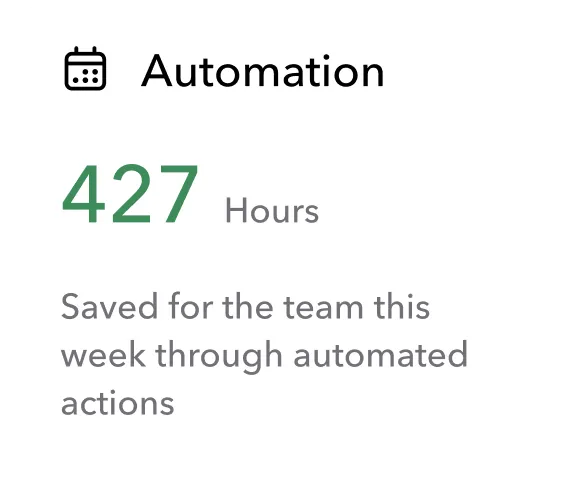Looking to boost communication and productivity in your company or workplace? An employee mobile app can help. These apps streamline daily tasks with features like instant messaging, task management, and HR self-service.
This article highlights the best features of employee mobile apps and how they benefit your organization.
Key Takeaways
- Employee mobile apps enhance communication, engagement, and productivity, making them essential in modern workplaces.
- Key features of these apps include mobile-first design, push notifications, and instant messaging, which foster better internal communication and streamline workflows.
- Integrated security measures and compliance with regulations are crucial for protecting sensitive employee data when using these apps.
What is an Employee Mobile App?
An employee app is a digital platform designed to enhance the employee experience, primarily used on mobile devices. These apps fall under the category of employee engagement software and are vital tools for modern businesses.
They facilitate internal communication, workflow management, and HR self-service functionalities, making day-to-day tasks more convenient and efficient.
Much like the consumer apps we use for social networking or shopping, employee mobile apps provide ease of use and convenience in the workplace. They are engineered to improve internal communication and employee engagement, making them indispensable for companies aiming to foster a connected and productive work environment.
Benefits of Using Employee Mobile Apps
The benefits of employee mobile apps are extensive. For starters, they significantly impact productivity, engagement, and retention. A significant 60% of employees think that workforce apps have enhanced their productivity. This indicates a strong perception of the positive impact of such tools. Streamlining HR processes and reducing administrative tasks, these apps enable HR teams to concentrate on more strategic initiatives.
Employee mobile apps also play a crucial role in enhancing workplace culture. They foster open communication and loyalty among employees, which translates to higher engagement scores. Additionally, they empower distributed teams to feel more connected, bridging the gap between remote workers and their office-based counterparts.
The positive impact on company culture is undeniable. Increasing engagement, streamlining processes, and boosting productivity, employee apps contribute to a more cohesive and motivated workforce. They are not just tools but catalysts for transforming the employee experience into one that is more dynamic and fulfilling.
Essential Features of an Employee Mobile App
Focusing on key features that meet the diverse needs of the entire workforce is crucial to harnessing the power of employee mobile apps. From mobile-first design to push notifications and instant messaging, these features ensure that the company employee app also serves as a comprehensive tool for communication, engagement, and productivity.
1. Mobile-First Design
A mobile-first approach is crucial for employee mobile apps, prioritizing accessibility and ease of use on handheld devices. With an estimated 97% of Americans owning a mobile device, designing apps with a mobile-first mindset is not just beneficial but necessary.
This approach ensures that the app is user-friendly, catering to the significant number of employees who rely on smartphones for their daily tasks.
A mobile-first design enables companies to offer employees instant access to essential tools and information, no matter where they are. This not only enhances productivity but also ensures that employees can stay connected and engaged, making the app an integral part of their work life.
2. Push Notifications
Push notifications are a vital feature of mobile apps, serving as a real-time communication tool that keeps employees informed and engaged. They can deliver urgent company news, safety guidelines, and targeted updates directly to employees’ devices, ensuring that critical information is disseminated swiftly.
However, it’s important to strike a balance. Excessive push notifications can lead to employee burnout and negatively impact overall productivity. Therefore, companies should use push notifications judiciously, ensuring that they provide value without overwhelming the recipient.
3. Instant Messaging
Instant messaging is another crucial feature of employee mobile apps, facilitating fast and effective internal communications among staff. This feature allows for quick exchanges without the disruption of phone calls, making it ideal for both internal communications and maintaining workflow in shared work environments.
Additionally, instant messaging apps often come with scheduling features that help streamline schedule management and notify employees quickly. This integration ensures that communication remains seamless and efficient, further enhancing employee productivity.
4. Customizable Interface
A customizable interface is essential for employee mobile apps, allowing companies to tailor the employee app to reflect their unique culture and branding. This includes incorporating logos, color schemes, and other branding elements, making the mobile employee app into an extension of the company’s identity.
Organizing app functions into distinct categories improves user experience by allowing quick access to relevant sections. This customization ensures that the app is easily accessible and user-friendly, catering to the specific needs of the workforce without requiring coding or development experience.
Enhancing Employee Communication with Mobile Apps
Modern employee communication apps consolidate various tools, allowing for streamlined communication and reduced confusion. Integrating features like instant messaging, push notifications, and content sharing, these apps offer a unified platform for all communication needs.
Push notifications play a critical role in delivering urgent updates and important company information, directly to employees’ devices. This ensures that employees are always informed about safety guidelines, company news, and other critical updates, making communication swift and relevant.
Content sharing features further enhance communication by allowing other employees to access relevant information and documents easily. This promotes collaboration across teams and ensures that everyone on the entire team has the information they need to perform their duties effectively.
Boosting Employee Engagement Through Mobile Apps
Employee engagement apps provide quick and easy access to information, enhancing communication and making employees feel more connected to their workplace. These apps help reduce feelings of isolation among remote workers by facilitating constant communication and connection, which is especially important in today’s more remote work and hybrid work environments.
Features like recognition and feedback mechanisms within these apps can significantly boost job satisfaction. Allowing peers to celebrate achievements and offering platforms for real-time, employee recognition, surveys and feedback, the top features of these apps foster a culture of appreciation and enhance team morale.
Polling and survey features enable organizations to gather employee insights, helping to identify areas for improvement and develop effective employee recognition and engagement strategies. These tools make employees feel heard and valued, contributing to a healthier and more engaging work environment.
Improving Productivity with Task Management Tools
Task and project management tools within employee apps can significantly improve productivity by providing features for real-time updates and instant messaging. These tools enhance collaboration by enabling team members to share ideas and work on project management from any location, ensuring that decisions are made quickly and efficiently.
Additional features like time tracking and task prioritization help employees focus on the most urgent work first. Document management functionalities also ensure that essential files are easily accessible, further streamlining workflow and boosting overall productivity.
Supporting Frontline Workers with Mobile Employee Apps
Mobile employee apps are particularly beneficial for frontline workers, such as healthcare staff and retail employees. These employee apps bridge the technology gap between desk-based and frontline workers by providing essential tools for communication and task management. Real-time communication and updates are critical in dynamic work environments, ensuring that frontline workers are always informed and connected.
Dedicated applications for frontline employees can improve engagement and enhance overall performance by giving them easier access to company and human resources together. These apps also cater to the unique needs of deskless workers, who often have limited access to traditional communication tools.
Training and Onboarding with Employee Mobile Apps
Employee mobile apps play a crucial role in training and onboarding new hires. By integrating human resources systems, these apps automate repetitive tasks such as onboarding paperwork and approvals, significantly enhancing efficiency.
They also provide self-service options, making the employee onboarding process smoother and more engaging for new employees.
Interactive Training Modules
Training modules in a mobile app are accessible to both deskless and office workers, ensuring equal opportunities for ongoing development. These digital communication modules can include various training materials such as written texts, videos, and diagrams from other apps, making learning more engaging and comprehensive.
Managers can track the number of sign-ups and follow-through regarding employee training, ensuring that employees are actively participating in their development. This tracking performance management capability helps in identifying areas where additional training might be needed, ensuring a well-rounded development program for reach employees.
Seamless Onboarding Process
Interactive training modules within employee apps help new hires feel more engaged and better prepared for their roles. Providing bite-sized training content can help mobile employees engage without overwhelming them, making the learning process more manageable.
Responsive Learning Management Systems (LMS) can automatically adapt learning materials to different screen sizes, making training accessible on various devices. This ensures that new hires have quick access to essential company information and resources, streamlining the onboarding process and helping them integrate smoothly into the workforce.
Ensuring Security and Compliance
Ensuring security and compliance is paramount when implementing employee mobile apps. Compliance with regulations like GDPR and CCPA is crucial for protecting user data and minimizing legal risks. Implementing strong security measures, such as data encryption and multi-factor authentication, is vital during HR system integration to safeguard sensitive information.
Features like single sign-on allow all mobile device users to access the company app and internal comms intranet using their work or personal accounts, simplifying the login process while maintaining security. These measures ensure that employee data is protected and that the app complies with relevant legal standards.
Integrating Employee Mobile Apps with Existing Systems
Integrating employee mobile apps with existing business applications is crucial for enhancing workflow efficiency and reducing user learning curves. These integrations can automate workflows, reducing manual errors and saving time, leading to smoother operations and increased productivity.
Implementing security measures like multi-factor authentication and end-to-end encryption is essential for protecting sensitive information. Role-based access control can also help restrict access to sensitive information based on user roles, ensuring that only authorized personnel can access specific data.
Summary
Employee mobile apps are transformative tools that enhance productivity, engagement, and communication within the workplace.
By leveraging mobile-first design, push notifications, instant messaging, and customizable interfaces, these apps cater to the diverse needs of the modern workforce. They streamline communication, foster a connected company culture, and provide essential tools for both desk-based and frontline employees.
As businesses continue to navigate the complexities of remote and hybrid work environments, integrating employee mobile apps with existing systems and ensuring robust security and compliance measures, new technologies for company apps are crucial.
These apps not only improve operational efficiency but also enrich the overall employee experience, making them indispensable in today’s fast-paced business world.
Frequently Asked Questions
What is an employee mobile app?
An employee mobile app is a digital platform that enhances the employee experience by improving internal communication, streamlining workflow management, and providing self-service HR tools. Utilizing such an employee app, can significantly boost engagement and efficiency within the workforce.
How do employee mobile apps improve productivity?
Employee mobile apps enhance productivity by offering real-time updates, instant messaging, and task management among other tools besides, which streamline collaboration and improve workflow efficiency. Thus, leveraging these applications can significantly boost overall workplace performance.
What are the essential features of an employee mobile app?
A well-designed employee mobile app should prioritize mobile-first design, push notifications, instant messaging, and a customizable interface. These essential features enhance user experience and ensure alignment with your company’s culture.
How do mobile apps support frontline workers?
Mobile apps enhance frontline workers’ engagement and performance by facilitating real-time communication and performance management and providing access to vital company resources. This support helps bridge the technology gap between desk-based and frontline employees.
What measures ensure the security and compliance of employee mobile apps?
To ensure the security and compliance of employee mobile apps, implement strong security measures such as data encryption, multi-factor authentication, and adherence to regulations like GDPR and CCPA. These steps will protect sensitive information and maintain regulatory compliance.









